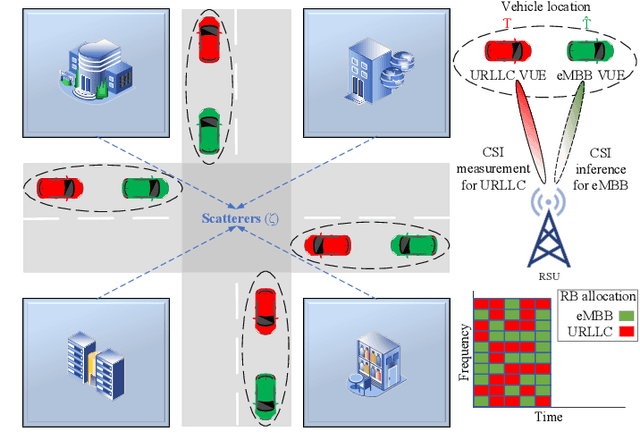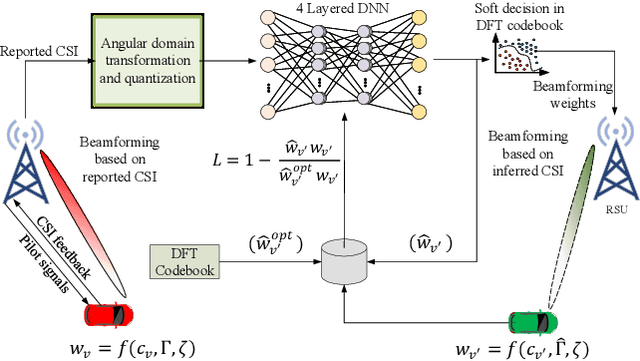Deep Learning Assisted CSI Estimation for Joint URLLC and eMBB Resource Allocation
Paper and Code
Mar 12, 2020



Multiple-input multiple-output (MIMO) is a key for the fifth generation (5G) and beyond wireless communication systems owing to higher spectrum efficiency, spatial gains, and energy efficiency. Reaping the benefits of MIMO transmission can be fully harnessed if the channel state information (CSI) is available at the transmitter side. However, the acquisition of transmitter side CSI entails many challenges. In this paper, we propose a deep learning assisted CSI estimation technique in highly mobile vehicular networks, based on the fact that the propagation environment (scatterers, reflectors) is almost identical thereby allowing a data driven deep neural network (DNN) to learn the non-linear CSI relations with negligible overhead. Moreover, we formulate and solve a dynamic network slicing based resource allocation problem for vehicular user equipments (VUEs) requesting enhanced mobile broadband (eMBB) and ultra-reliable low latency (URLLC) traffic slices. The formulation considers a threshold rate violation probability minimization for the eMBB slice while satisfying a probabilistic threshold rate criterion for the URLLC slice. Simulation result shows that an overhead reduction of 50% can be achieved with 12% increase in threshold violations compared to an ideal case with perfect CSI knowledge.
 Add to Chrome
Add to Chrome Add to Firefox
Add to Firefox Add to Edge
Add to Edge